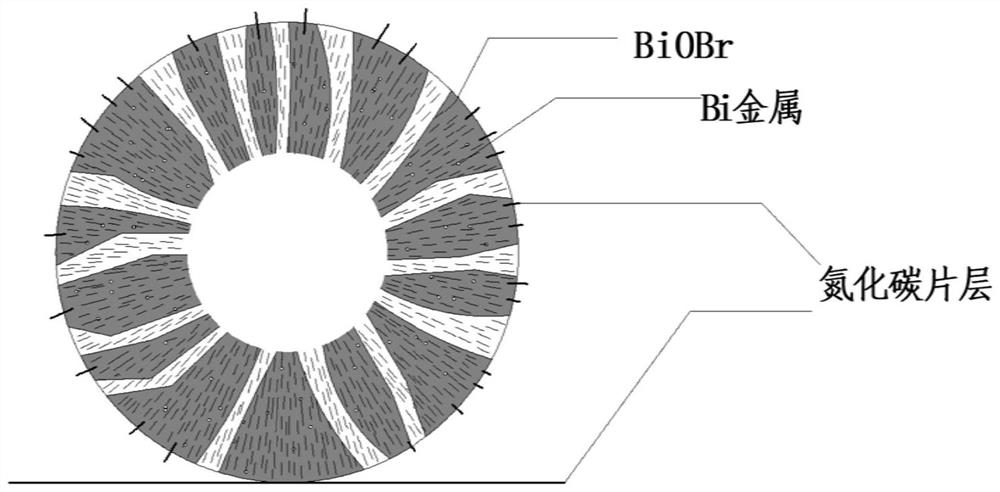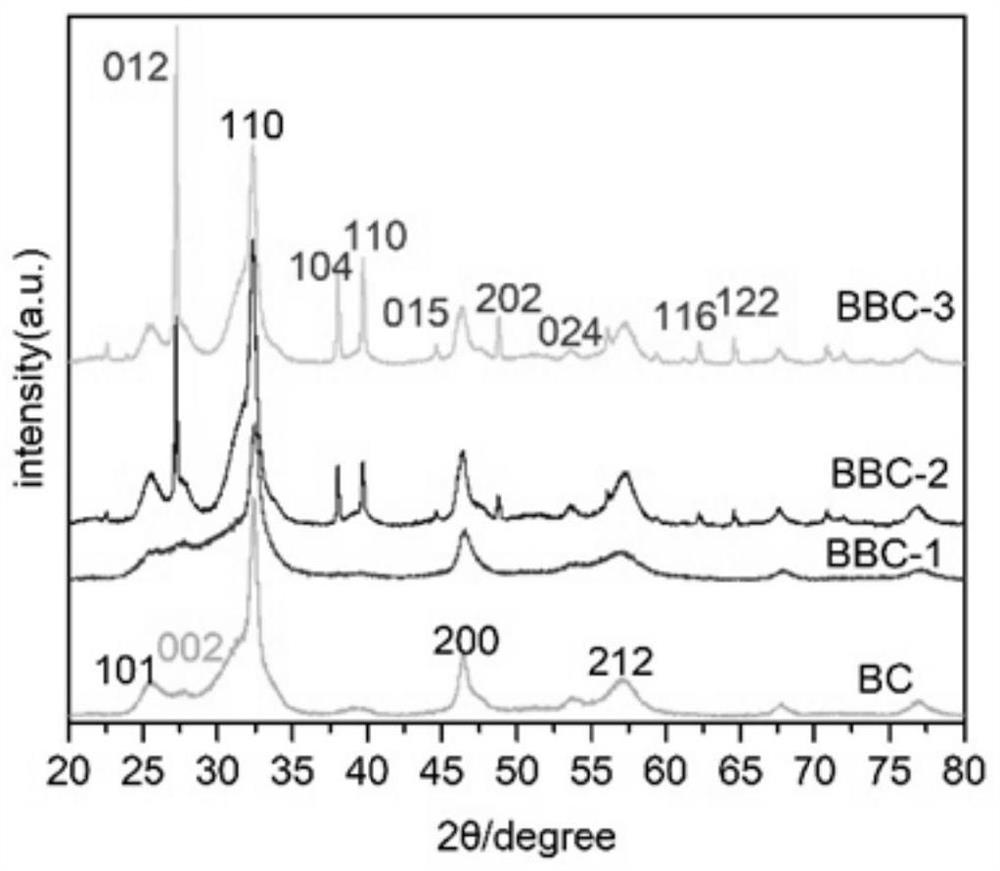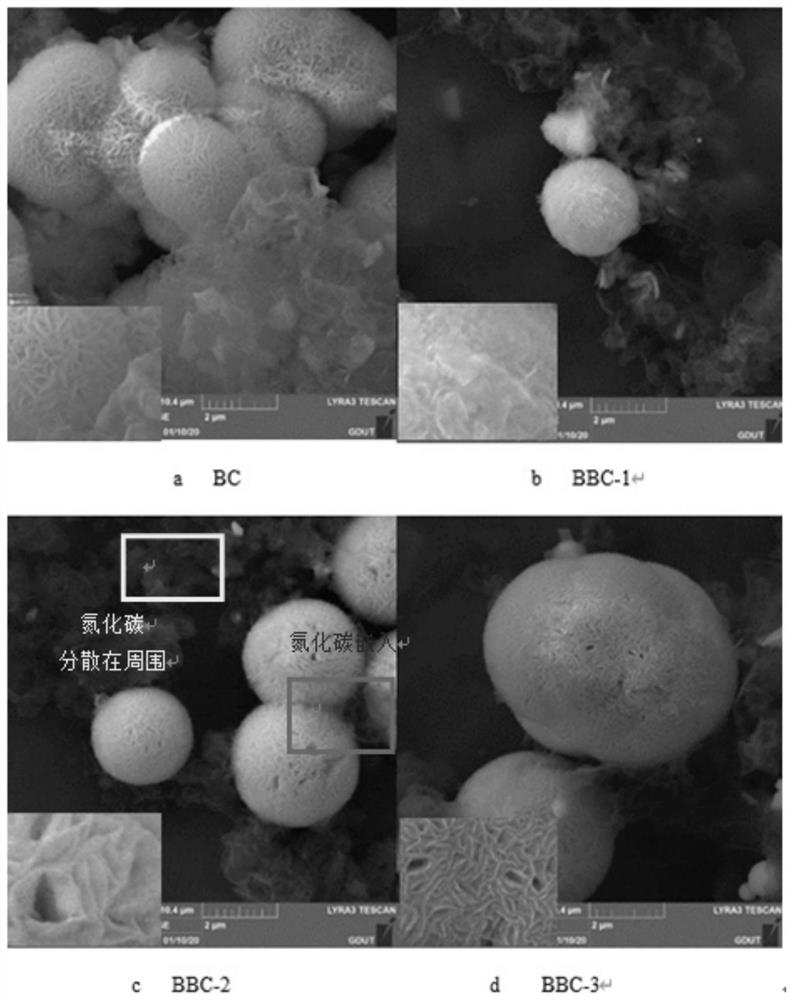Bi-modified BiOBr-g-C3N4 heterojunction photocatalyst as well as preparation method and application thereof
A photocatalyst, g-c3n4 technology, applied in the field of photocatalysis, can solve the problem of insufficient absorption of visible light and achieve the effect of reducing the band gap
- Summary
- Abstract
- Description
- Claims
- Application Information
AI Technical Summary
Problems solved by technology
Method used
Image
Examples
Embodiment 1
[0076] This embodiment provides a Bi modified BiOBr-g-C 3 N 4 Heterojunction photocatalyst, its preparation method comprises the steps:
[0077] S1. Preparation of g-C 3 N 4
[0078] Weigh 10g of urea into a ceramic crucible with a cover, place the crucible in a muffle furnace, raise the temperature to 350°C at a heating rate of 5°C / min, perform a calcination, and keep it for 1h; then heat up at a rate of 5°C / min Raise the temperature to 550°C, perform secondary calcination, and keep for 3 hours; cool to room temperature (25-30°C), grind into powder, wash with water and ethanol respectively, and finally put it in an oven and dry at 60°C for 36 hours to obtain porous g-C 3 N 4 ;
[0079] S2. Preparation of Bi-modified BiOBr-g-C 3 N 4heterojunction photocatalyst
[0080] S21. g-C prepared from S1 3 N 4 0.2g, 1mmol Bi(NO3) 3 And 0.3g PVP is dissolved in the beaker that 20mL ethylene glycol (EG) is housed, obtains solution A;
[0081] S22. Dissolving 1mmol KBr and 1m...
Embodiment 2
[0084] This embodiment provides a Bi modified BiOBr-g-C 3 N 4 The difference between the heterojunction photocatalyst and Example 1 is that the amount of citric acid added in step S22 is 2 mmol, and the Bi-modified BiOBr-g-C prepared finally 3 N 4 Heterojunction photocatalyst, denoted as BBC-2, where Bi, BiOBr and g-C 3 N 4 The mass ratio is 0.27:1.14:1.
Embodiment 3
[0086] This embodiment provides a Bi modified BiOBr-g-C 3 N 4 The difference between the heterojunction photocatalyst and Example 1 is that the amount of citric acid added in step S22 is 3 mmol, and the Bi-modified BiOBr-g-C prepared finally 3 N 4 Heterojunction photocatalyst, denoted as BBC-3, where Bi, BiOBr and g-C 3 N 4 The mass ratio is 0.41:1:1.
PUM
 Login to View More
Login to View More Abstract
Description
Claims
Application Information
 Login to View More
Login to View More - R&D
- Intellectual Property
- Life Sciences
- Materials
- Tech Scout
- Unparalleled Data Quality
- Higher Quality Content
- 60% Fewer Hallucinations
Browse by: Latest US Patents, China's latest patents, Technical Efficacy Thesaurus, Application Domain, Technology Topic, Popular Technical Reports.
© 2025 PatSnap. All rights reserved.Legal|Privacy policy|Modern Slavery Act Transparency Statement|Sitemap|About US| Contact US: help@patsnap.com



